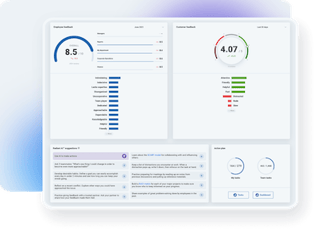
How "Managing Up" Can Hurt Employee Engagement
Employee engagement is impacted by a range of factors in the workplace, from the work employees do to how they interact with their manager and coworkers. One behavior that can have a strong impact on employee engagement is “managing up,” where an employee develops strong relationships with direct or indirect managers, anticipates their needs, and prioritizes meeting their expectations. Managing up can be good for employee engagement. Research shows that strong relationships between employees and managers account for 70 percent of the variance in employee engagement. Managing up helps employees to understand, anticipate, and meet the needs of their managers, which often results in a thriving, positive relationship between the employee and their manager.
On the other hand, there are circumstances in which managing up can hurt team engagement and create discord among members of the team. Here are three ways managing up can hurt employee engagement, and one powerful way to fix it:
1. It Can Hurt Team Accountability
Teams can operate effectively only if each member trusts the others to do their part and deliver on their commitments. Team members must be accountable to one another. In fact, Google’s Project Aristotle studied the factors impacting team success and found that trust among team members was at the core of team effectiveness. Managing up, however, can impede team effectiveness, particularly when any one individual fails to be accountable to the rest of the team. For example, employees who skip out on team commitments to work on a project for the boss, or put the needs of the manager ahead of the needs of the team, can erode trust and accountability within the team and create an environment that puts individual engagement at risk.
2. It Can Ruin Reputations
Managing up, especially if it’s done to the exclusion of others, can give an employee a bad reputation. In a Glassdoor article describing the top ways to sabotage a work reputation, “Only Caring What Your Boss Thinks” was at the top of the list. No one wants to be known as the employee who “kisses up” to managers, but managing up in a way that alienates others will lead to a reputation that can be hard to overcome. Instead of being known for their accomplishments and ability to be a team player, those who manage up may instead be known as “professional climbers” who care only about pleasing people in positions of authority. Moreover, employees who must fight to overcome a bad reputation can become disengaged in the process.
3. It Can Hurt Other Manager-Employee Relationships
Although it’s a good thing for managers and employees to have strong relationships, managers who reward direct or indirect reports who manage up can be viewed as biased or unfair by the rest of the team. The team can’t be effective if only one manager-employee relationship is strong and the rest are fraught with feelings of resentment or jealousy. The employees who don’t manage up can then feel left out, and when that happens, engagement can suffer. In fact, research by Gallup found that one of the top causes of employee burnout is unfair treatment at work. When employees are close to or already experiencing burnout, it’s hard for them to be engaged.
How to Address the Effects of Managing Up
The key to addressing upward-focused behavior that creates problems of accountability, poor relationships, and low engagement is feedback. Creating opportunities for every employee to give 360-degree feedback about their experiences with managers, peers, and subordinates helps you identify the individuals whose behavior negatively impacts engagement. Three hundred sixty-degree feedback also helps those who frequently manage up realize that manager feedback isn’t the only kind that matters. Once you have visibility into who the upward-focused individuals are in the organization, you can begin a conversation with them and their manager to address the impact their behavior has on team relationships and effectiveness.
Managing up isn’t all bad, but when it negatively affects employee engagement, you’ll need to take action to ensure the strength of certain relationships doesn’t break down others. Giving every employee full 360-degree feedback is a great way to leverage the power of all types of relationships in the workplace.





